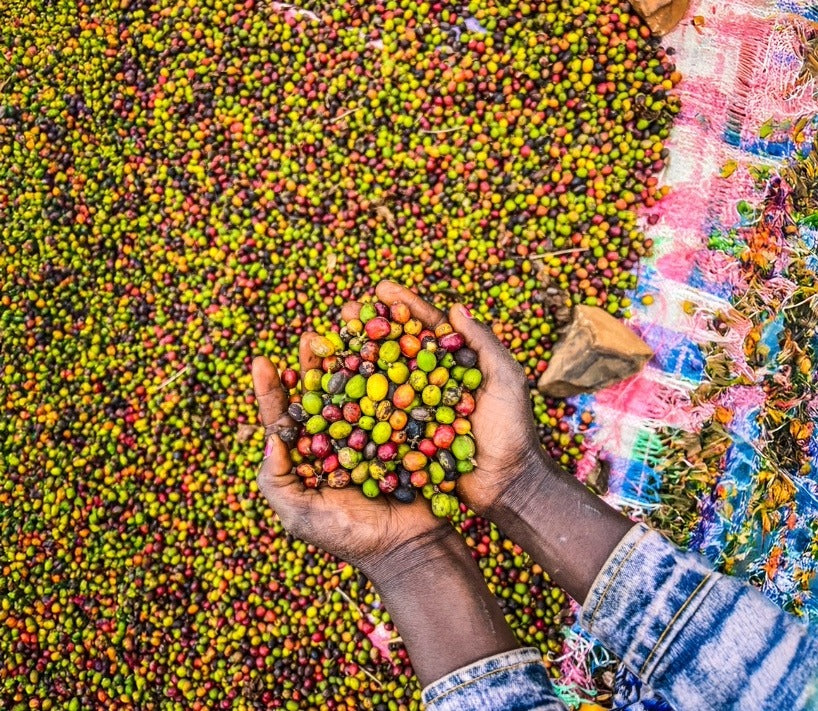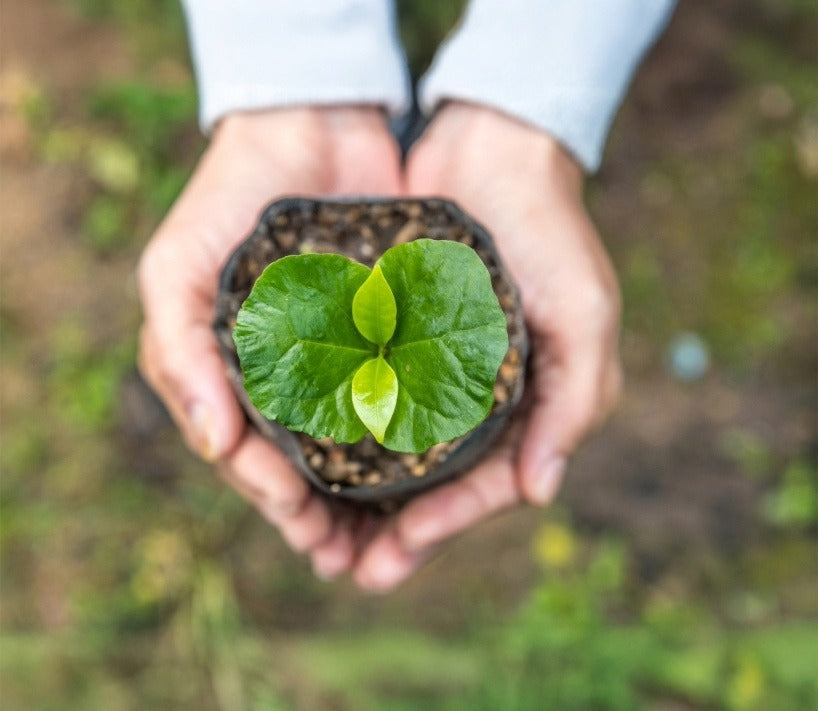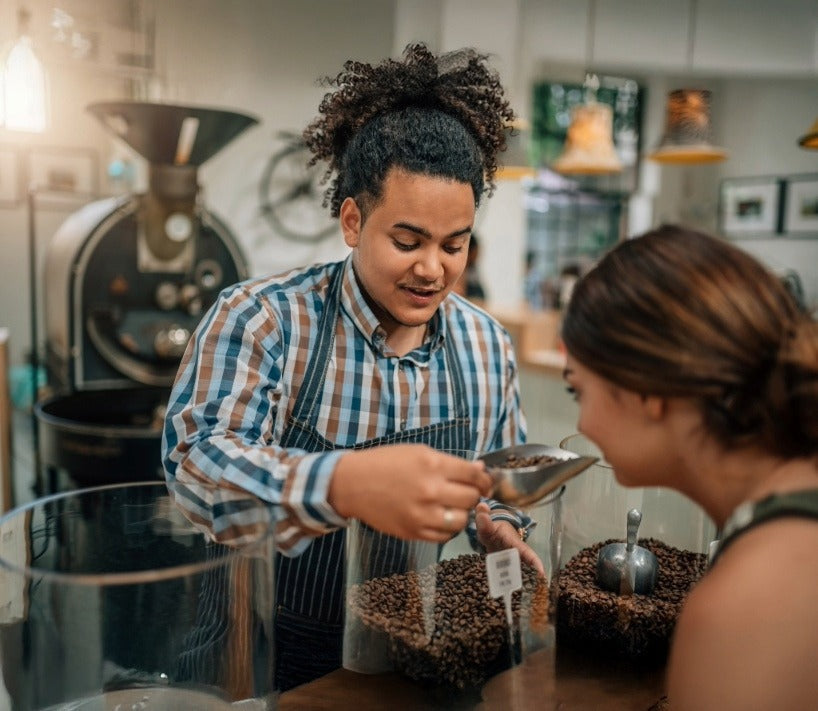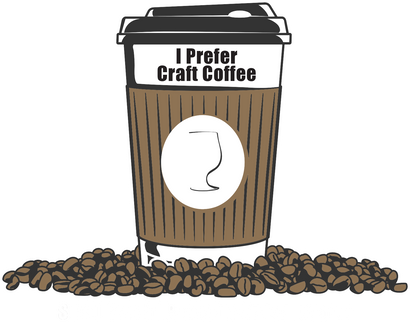Top Specialty Coffee Online: Why I’d Never Touch Discounted Beans After Roasting 5,000 Pounds
June 12, 2025 4 min read
Top Specialty Coffee Online: Why I’d Never Touch Discounted Beans After Roasting 5,000 Pounds
Remember the childhood “mystery meat” day in the school cafeteria? You knew something once—possibly—resembled food, but by the time it hit your tray it was one existential crisis away from becoming cat food. Discounted coffee beans are the caffeine world’s mystery meat, and after personally roasting more than 5,000 pounds of the good stuff (and inhaling enough aromatics to qualify as a living pour-over), I’ve sworn a sacred barista’s oath: I will never—ever—buy discounted beans again. Stick around and you’ll see exactly why skipping the bargain bin is your golden ticket to brewing the best craft coffee at home, finding the freshest craft coffee online, and keeping your taste buds salsa-dancing rather than sorrow-weeping.
Top Specialty Coffee Online Rule #1: Freshness Beats “Frugality” Every Time
1. Age Is Not Just a Number
Coffee is a delicate agricultural product. From the day those emerald-green seeds leave the drying beds, a timer starts. Enzymatic compounds, lipids, and volatile aromatics begin an inevitable “slow fade.” By month six—before roasting!—the bean has lost up to 70 percent of its aromatic potential. Roasting stale greens doesn’t resurrect their flavor; it only toasts a eulogy.
2. Discount = Degradation
Why are beans discounted? Two usual suspects:
-
Old Stock – Importers offload what cafés rejected last season.
-
Low Cupping Scores – Below the Specialty Coffee Association’s 80-point threshold (aka “meh” territory).
Either way, the bargain you snag is a bag of lost dreams. Want to drink the top specialty coffee online? Pay attention to harvest calendars, not coupon calendars.
Comparison: Fresh High-Scoring Beans vs. Discounted “Deal” Beans
| Feature | Fresh, High-Scoring Beans (80 + SCA) | Discounted/Close-Out Beans |
|---|---|---|
| Harvest Year | Current | 1–3 years old |
| Roast Date Window | Within days of order | Unknown / bulk-roasted months ago |
| Flavor Complexity | Vibrant florals & sugars | Flat, papery, sometimes rancid |
| Shelf Life After Roast | 3–4 weeks peak | 3–4 hours (they were DOA) |
| Total Brew Cost per Cup* | $0.90 (you finish the bag) | $1.10 (you toss half in disgust) |
| Joy-to-Slog Ratio | 9.8 : 1 | 2 : 8 |
*Including waste and quality-adjusted enjoyment. Yes, that’s a thing.
The Discount Trap: Three Myths Busted
-
“But I’ll save money”
Reality: You waste more tossing mediocre mugs. Your best coffee subscription online should deliver beans you actually finish. -
“I’ll dark-roast the flaws away”
Scorching a stale bean is like char-grilling a shoe. It may smell intriguing, but you’re still chewing leather. -
“I can mask it with flavored syrup”
That’s coffee cosplay. The point of specialty isn’t hiding defects—it’s celebrating terroir.
How to Sniff Out Truly Top Specialty Coffee Online
1. Demand the Harvest Year
Any roaster worth their refractometer proudly lists it. If they dodge the question like a politician at a pie-eating contest, bail.
2. Ask for the Green “Grader” Score
Specialty starts at 80 points. My personal threshold? 84 +. Life’s too short for mediocrity—especially at 6 am.
3. Verify the Roast-to-Ship Window
Look for roast-to-door delivery within 72 hours. That’s how you secure the best coffee to buy online instead of coffee-shaped cardboard.
4. Taste Test with a Simple Recipe
Use a 1:16 ratio on a V60 or French press. Great beans shine even in rookie hands (bonus: it’s how pros cup). If your brew needs a PhD in extraction to taste decent, blame the bean, not your biceps.
Freshness Timeline: What Happens Inside the Bean
| Timeline | Chemical Reality | Cup Experience |
|---|---|---|
| Day 0–7 | CO₂ degasses rapidly; oils stay protected | Bright acidity, sparkling sweetness |
| Day 8–21 | Sweet spot: aromatics peak | Balanced complexity, lingering finish |
| Day 22–30 | Oxidation begins degrading fats | Dull edge creeps in |
| Day 31 + | Staling accelerates; papery notes | Caffeine with a side of sadness |
Discounted beans often start at day 31. Pass.
The 5K-Pound Perspective: Lessons from the Roaster’s Pit
-
Your Nose Always Knows: Green beans should smell sweet-hay-ish, not musty attic. Learn that scent; trust it.
-
Moisture Matters: Specialty beans land between 10 – 12 percent. Cheap lots swing wildly, causing roast defects.
-
Density Drives Development: High-altitude coffees >1,400 m are denser, roast evenly, and taste like tropical fruit bouquets; lower-grade beans puff like stale popcorn.
-
Lot Integrity: Traceable micro-lots let you geek out on farm data. Discounted blends? A Franken-mix of who-knows-what.
-
Storage Is Sacred: Grain-Pro or vacuum-sealed bags keep oxygen and humidity out. Discounted lots chill in burlap and pray for low tide.
Stop Settling—Start Savoring (Without the Sales Pitch)
I’m not here to hawk beans today—really. I’m here to protect your morning from tasting like expired trail mix. Hunt for the top specialty coffee online by grilling your roaster the way you’d grill a spam caller:
-
“When was this coffee harvested?”
-
“What’s the cupping score?”
-
“How soon after roasting will you ship?”
If they can’t answer faster than you can say “double-cortado,” move on. Your palate (and your inner barista) deserve better.
Frequently Asked Questions (and Answers Your Cup Will Thank You For)
Q1: Are discounted coffee beans always stale?
A: Not 100%—but the Venn diagram of “cheap” and “past their prime” is practically a circle. Odds are stacked against you.
Q2: Can vacuum-sealing extend green bean life?
A: Yes, but only to a point. After 12 months, even sealed greens show sensory decline.
Q3: How do I measure bean freshness at home?
A: Check the roast date first. Then taste: if the bloom is weak and flavors flat, the bean’s expired.
Q4: What’s the difference between “best craft coffee at home” and regular supermarket beans?
A: Quality (higher score), freshness (roasted to order), and traceability (you know the farm, not just “South America”).
One Last Sip
Now you know the why behind my eternal ban on bargain beans: life is too short, mornings too precious, and caffeine too critical to gamble on stale stock. Arm yourself with harvest dates, cupping scores, and roast windows, and you’ll forever enjoy the best coffee subscription online or one-off bags that taste like they time-traveled straight from the farm to your dripper. Mystery meat no more—welcome to flavor certainty.
Happy brewing, fellow bean geek!
Also in Best Coffee To Buy Online Education

Fair Trade Craft Coffee Beans Online: What It Means (And Why It Matters)
January 08, 2026 4 min read
A simple guide explaining fair trade specialty coffee, why it matters, and how to buy the best craft coffee online. Remember, the best tasting craft coffee at home comes from high-elevation specialty coffee farmers.

Sustainable Coffee Beans Home: What It Really Means (And Why It Matters)
January 07, 2026 3 min read
Learn what sustainable specialty coffee at home really means and how it makes the best tasting craft coffee at home every morning.

Small Roaster Coffee Beans USA: Why Supporting Local Roasters Matters
January 06, 2026 3 min read
Learn why buying from small batch coffee roasters online in the USA delivers fresher coffee, better flavor, and stronger local impact. Order coffee online from a roaster you trust. It's the only way to get the best tasting craft coffee at home.
